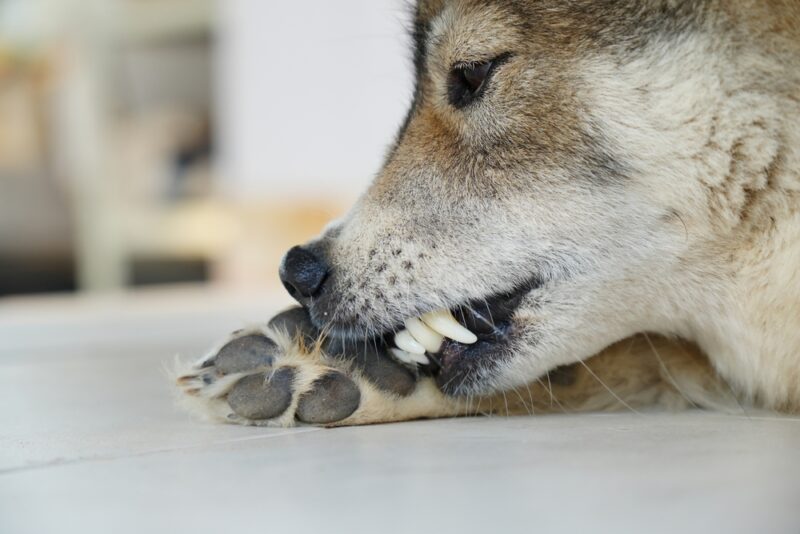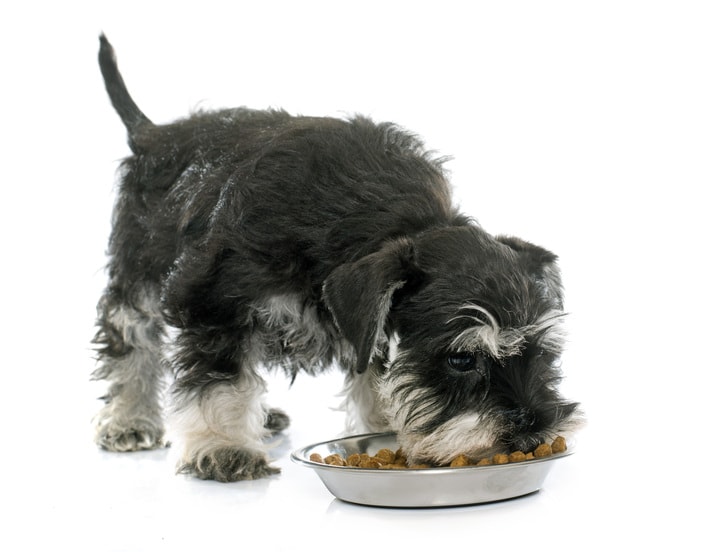Can Dogs Eat Sea Moss? Vet Approved Facts & FAQ
By Lorre Luther
Updated on
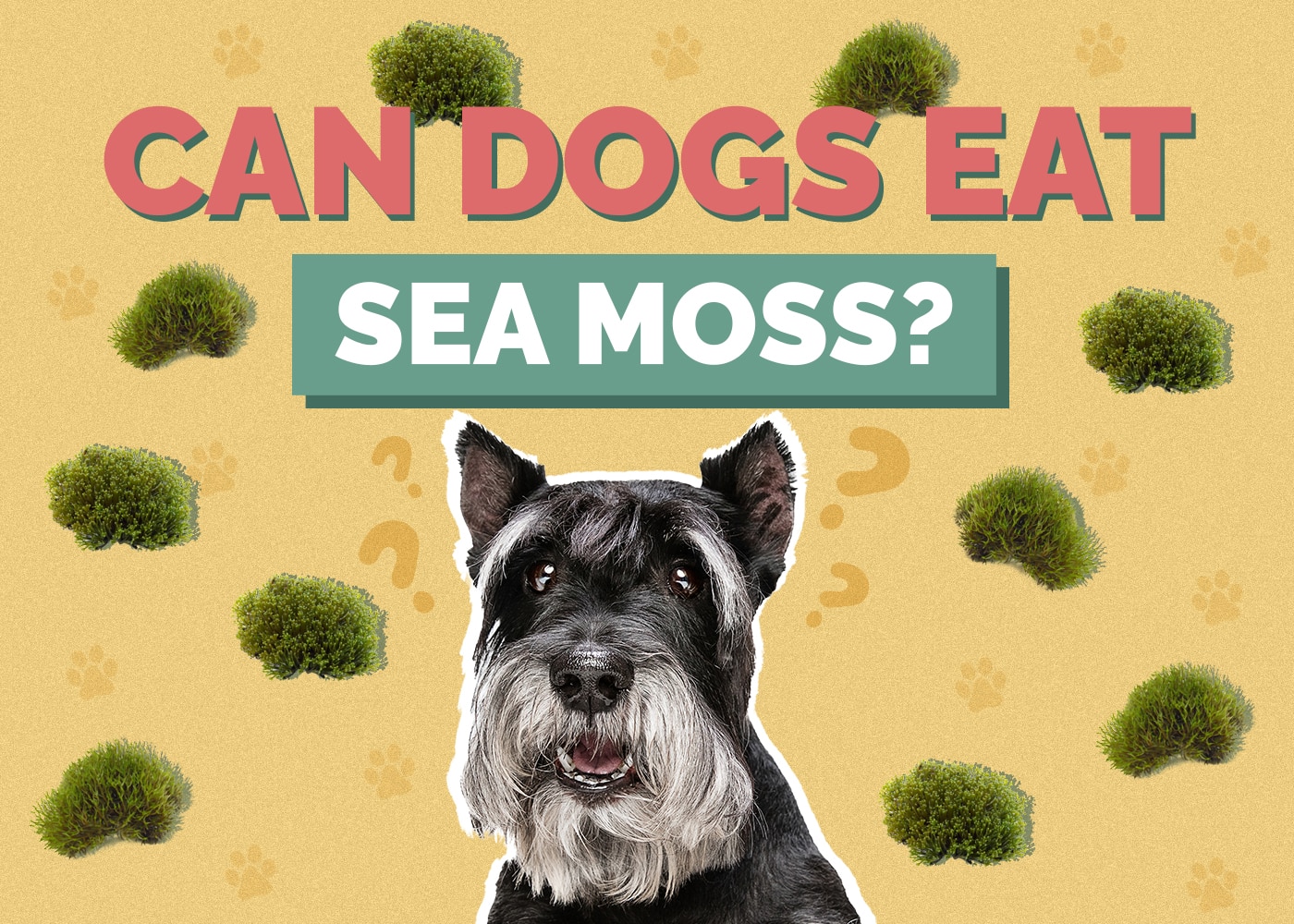
Sea moss, Chondrus crispus, is a type of algae or seaweed. It’s a low-fat, low-calorie food often touted by health experts as a superfood since it’s packed full of iodine, amino acids, antioxidants, and phytonutrients that humans need for optimum health. It comes in several colors, including gold, purple, blue, green, and yellow.
Sea moss is native to the Atlantic waters of North America and Europe. It can also be found around several Caribbean islands. But what about dogs? Can dogs eat sea moss? If so, is it good for them? Dogs can eat sea moss! It’s safe when provided as an occasional treat, but it contains a healthy dose of iodine. Too much iodine consumption can lead to thyroid problems in dogs, so it’s best to limit your buddy’s sea moss consumption to an occasional treat unless advised otherwise by your veterinarian.
How Healthy Is Sea Moss? What Benefits Does It Have for Canine Health?
Sea moss is considered a human superfood because it contains healthy nutrients such as manganese, phosphorus, potassium, and zinc, as well as vitamins B1, A, and E, which are essential for optimal canine health.1
Manganese supports canine digestion and nutrient absorption. It may also benefit your buddy’s kidney, liver, and brain health. Phosphorus helps build healthy canine bones and keeps your pet’s metabolism functioning at an optimal level. Potassium helps pets maintain proper hydration levels. It’s also critical for cardiac function.
Zinc is critical for optimal immune function and wound healing, and vitamin B1 maintains digestive and brain health. Vitamin A supports nerve and muscle functions, and vitamin E is great for dogs’ immune systems and coat health.
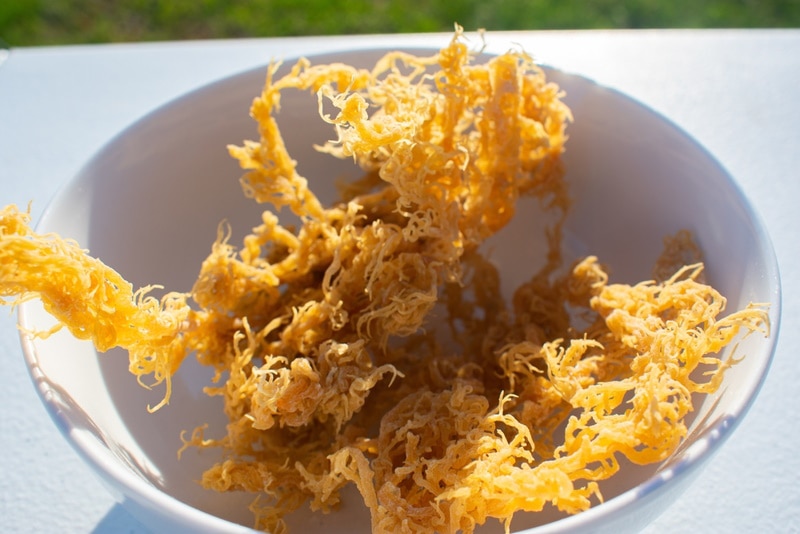
What’s the Best Way to Introduce Sea Moss to My Dog’s Diet?
Check with your veterinarian for a solid recommendation for if you should and how much sea moss to give your pet.
Sea moss is usually recommended when introduced to your pet’s diet as an occasional supplement. Consuming too much sea moss over time can result in iodine poisoning, which can lead to vomiting, weight loss, and death if left untreated.
Ask your veterinarian for guidance on how much sea moss your dog should eat. Some pets should avoid sea moss unless advised otherwise by a veterinarian, including pregnant and lactating dogs and those taking some anticoagulant medications.
To add sea moss to your dog’s diet, crumble a bit of fresh or dried sea moss and mix it into your pet’s food. Alternatively, you can use canine-friendly powders that allow you to add a scoop or two of the formulation to your pet’s wet food. Some products include a variety of canine-appropriate seaweed species to provide a broader range of nutrients than single-strain choices. Wild seaweed typically has more vitamins and minerals than farmed options due to how algae absorb environmental nutrients.

Feeding Tips for Optimum Canine Health
Dogs are facultative omnivores, meaning they can digest and obtain nutrients from plant and animal-based foods. They can get vitamins, minerals, and fiber from fruit and vegetables and protein from meat and other sources. Although dogs can eat many of the same products as humans, they have specific nutritional needs for vitamins, protein, fat, and minerals.
Commercial products that meet the American Association of Feed Control Officials (AAFCO) canine nutritional guidelines contain the nutrients dogs need for optimum health. Meals for older dogs and pets suffering from mobility issues often have products such as glucosamine and chondroitin to support joint health. Dog food for overweight pets and those with kidney and recurrent urinary tract conditions can play an essential role in keeping dogs healthy over time.

General Health Tips for Dogs
While some dogs require more maintenance than others, most need regular exercise, a bit of grooming, and high-quality food to stay in top shape. Smaller dogs typically don’t require quite as much heart-pumping activity as larger pets, although there are always exceptions. Toy breeds are often content with two good daily walks, while large active dogs like Huskies often need at least a few hours of outdoor fun to stay centered.
Dogs also require regular grooming. Pets with longer double coats, like Golden Retrievers, often require almost daily brushing to keep their coats reasonably tangle-free; it also helps distribute your pet’s naturally nourishing skin oils over the entirety of their body.
All dogs require regular dental and nail care; daily tooth brushing sessions and monthly nail trims will suit most breeds.
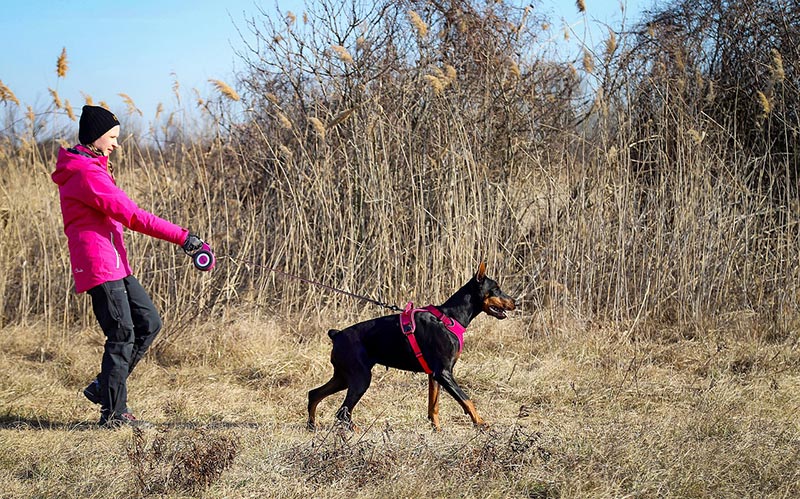
Conclusion
Sea moss is a human superfood that contains vitamins, minerals, and nutrients humans require for optimal nutrition. It’s fine for dogs to enjoy fresh or dried sea moss as an occasional treat since it’s not toxic to dogs. Avoid allowing pets to consume large quantities of sea moss as it contains a fair amount of iodine, which can cause thyroid problems in some pets.
It’s best to check with your veterinarian to determine the right amount of sea moss for your pet since it’s essential to adjust the dosage based on the dog’s age, weight, breed, and current health conditions.



